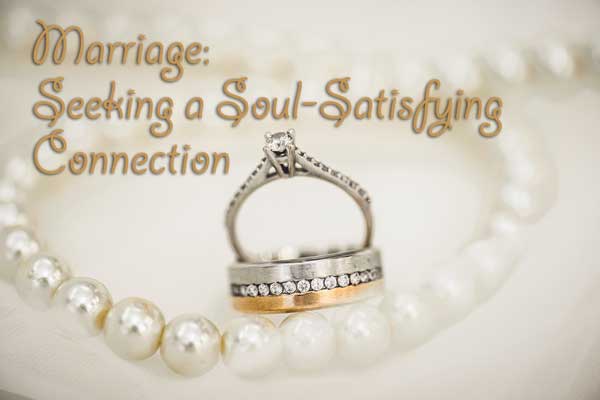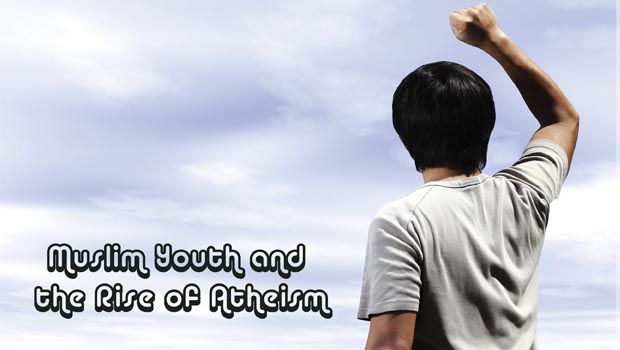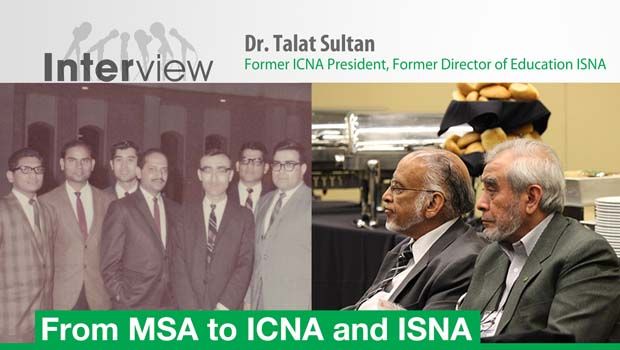Marriage in Islam has been described as a protective garment, a source of tranquility and comfort, and as the completion of our faith. It is the moral path to finding loving companionship and avoiding zina (unlawful sex). One of the most well-known, and well-quoted, marriage verses in the Qur’an sums up what every marriage-minded Muslim hopes and prays for: “And among His Signs is this, that He created for you mates from among yourselves that you may dwell in tranquility with them, and He has put love and mercy between you. Verily in that are Signs for those who reflect”(Qur’an 30: 21).
It’s not just religious obligation that drives us. Allah designed our human nature to include feelings of love and passion and the desire to find a soul-satisfying connection to another human being. And society pushes romance and the happily-ever-after story at us through music, television, and film. Literature provides examples of love stories overlaid with tragedy, like Romeo and Juliet, Cleopatra and Mark Antony, or emperor Shah Jahan and queen Mumtaz Mahal. Tragic loss is often presented as the measure of a great love story for Western society.But Islam has given us a perfect standard for choosing a mate. The Prophet (s) said, “A woman is married for four things, her wealth, herlineage, her beauty, and her religion. So, you should marry the religious woman”(Bukhari and Muslim).
Pressure on Young Adults to Marry
For Muslim parents, facilitating marriage for their child is important. It seems a frantic process for those who fear their daughters may age out of their prime marriageable years (doomed to marry divorced men or become second wives), orthat their sons don’t have the right career or education level to attract a young woman’s family. It’s no wonder that parents, aunts, uncles, and even friends constantly pressure young adults to find a potential spouse and seal the deal. Some mothers form social networks sending out CVs or join social media marriage groups on Facebook, hoping to snag that most perfect mate for their child. A Muslim matrimonial ad reads something like this: “pious (insert ethnicity)girl’s family seeking an educated, tall, fit, practicing Muslim from (insert city, town, or village)…” Online matrimonial meetups are on the rise as well with engagements happening on a daily basis. But for every engagement, how many potential matchups dissolve after a few weeks of talking?
With all that pressure on young adults to get married, how much emphasis is focused on what makes a good and lasting marriage? During the “getting to know” period, what questions are asked? To get an idea about what Muslims consider when looking for a spouse, we presented questions about compatibility, the importance of chemistry, goals, and mature communication to a small group of Muslim singles looking for prospective mates, as well as to married and divorced women.
One single sister (26, TX), said, “Of course the first thing you have to get out of the way is what they’re about. Do they like the same things you do, have the same goals?” She added, “It’s obvious when you’re talking whether they can communicate, or not.” Another unmarried sister (24, OH), thought it was more important to have attraction between them, saying, “As long as there’s chemistry, I can work with the rest.” Communication is “vital” for a California single (23), who wanted a longer talking period (months) before agreeing to marriage or deciding to move on to another prospect. Four out of the six sisters wanted to find their own men, rather than a match being “arranged” because they felt that was old fashioned. The same four wanted to marry outside their cultural groups, but the two others wanted to marry someone from the same cultural background.All agreed, however, that they wanted the men to have been raised in America. All six sisters were afraid of marrying someone who wasn’t genuine and had a major secret like he was a womanizer or a homosexual. Several of the single brothers surveyed were not interested in being set up by parents or friends and preferred to be casual friends with a sister before deciding she was a good choice. A brother (24, VA) met a young woman at his university who he was talking to but hasn’t told his parents yet.
In Retrospect
When talking to some divorced sisters about their experiences and how they would have done things differently, their answers were surprisingly different from the singles. Three are in their late forties to early fifties and divorced from men whose cultures were different than theirs. Cultural compatibility followed by lack of communication were the biggest factors for them. A sister from Maryland said, “Culture can also lead to differences in religious understandings and expectations in many areas of marriage, child-rearing, and life. It can also create problems with in-laws.” Three women stayed in the marriage until their oldest children were at least in middle school. One sister waited until the childreng raduated high school, then she filed for divorce. Marital problems ranged from attitudes towards work outside the home, child-rearing differences between the two cultures, or communicating with the in-laws. The women also had expected Islamic behavior from their former spouses but realized that the men were either more cultural than religious Muslims or were just lax about their Islamic practice. Another sister considered compatibility as a minor concern, saying “Allah created us with differences so we can complete each other. Yes, it’s challenging to deal with someone who has a different culture/level of education/financial strength, etc. than yours, but with applying Islamic values, Allah eases it and those differences can turn into an asset to the family.”
Married women also cited compatibility as an issue in their marriage and something that had to either be ignored or worked on to maintain the marriage. For these women, it wasn’t enough of an issue to cause a divorce, but it did present problems in the marriage. For a sister in Texas, married for over 24 years, her husband’s different culture “was not important,” but as she looks for spouses for her children, she will insist on pre-marriage counseling and “compatibility not only with the individuals but both families have to be compatible…individuals and family expectations, values and norms.”
The Issue of Compatibility
For young people looking to get married these days, there are many different avenues for finding someone, but laying a foundation for a successful marriage takes hard work. It is harder to stay married for this generation than for their parents’ generation because there was a great emphasis on staying married, and divorce was more taboo in Muslim communities. Today, divorce is commonplace, so if someone is unhappy, it’s easier to consider divorce. Research shows that among the common reasons for divorce are lack of commitment to the marriage and basic incompatibility.
Those who were interviewed for this article, whether single, married, or divorced, had varying ideas about compatibility. Some thought about it in terms of culture, life goals, emotional connections, personality, or even hobbies. All are factors of compatibility. There is no single definition of compatibility because each person comes with their own ideas of what is important for a successful relationship. Honest and sincere communication,though, can bring two people together even if they have areas of difference.And what is meant to be will come to pass, as Islam teaches us. We should, however, take seriously what the Prophet (s) said — “Make a good choice of who will bear your children. Marry those who are compatible with you” (Ibn Majah, Al-Bayhaqi, and others). So, base your decision on who to marry on serious issues of compatibility, on things that make you and the prospective spouse a good fit, and on things that neither of you is willing to compromise on.The ability to communicate your wants, needs, fears, or even those things that are deal-breakers, is important in the spouse-selection process and as the relationship unfolds.
The Prophet (s) said, “Souls are like troops gathered together — those who are compatible bond and have an affinity with each other; and those who are averse to each other are dissimilar and incompatible” (Bukhari and Muslim).





